Search
Search Results
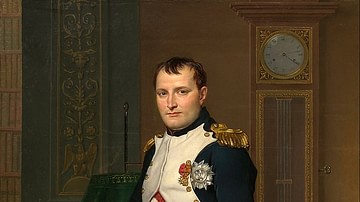
Definition
Napoleon Bonaparte
Napoleon Bonaparte (1769-1821) was a Corsican-born French general and politician who reigned as Emperor of the French with the regnal name Napoleon I from 1804 to 1814 and then again briefly in 1815. He established the largest continental...
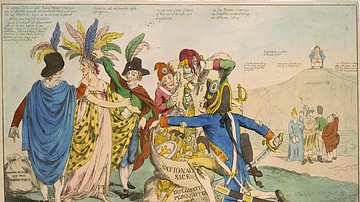
Definition
XYZ Affair
The XYZ Affair was a diplomatic incident that occurred in 1797-98, involving diplomats from the United States and Revolutionary France. Amidst rising tensions between the two nations, President John Adams sent envoys to Paris to negotiate...
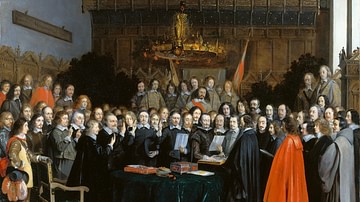
Definition
Peace of Westphalia
The Peace of Westphalia, the name given to the multiple treaties, marked the conclusion of the Thirty Years' War. Signed on 24 October 1648, it aimed to secure political autonomy for the multitude of small states that made up the Holy Roman...
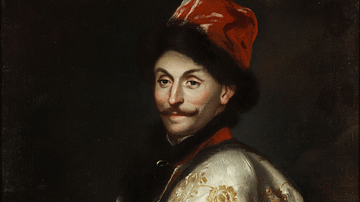
Article
The Grand Embassy of Peter the Great
The Grand Embassy was the name given to the long Western European tour that Tsar Peter I of Russia (aka Peter the Great, r. 1682-1725) undertook during 1697-1698. Peter was joined by hundreds of people, including noblemen, his friends, volunteers...
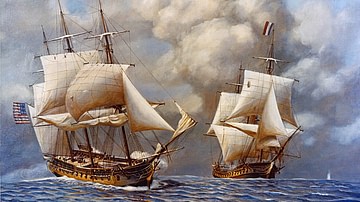
Definition
Quasi-War
The Quasi-War (1798-1800) or 'Half War' was a limited, undeclared naval conflict fought between the United States and the First French Republic. Hostilities arose when French privateers began attacking neutral American shipping, resulting...
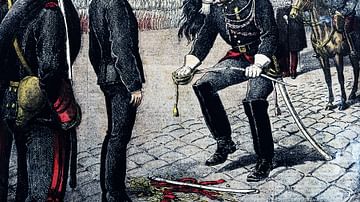
Article
The Dreyfus Affair & the Separation of Church and State in France
The Dreyfus Affair, or L'Affaire as it has become known, demonstrated the competing forces at work to either reestablish the monarchy and the Church in power or to solidify and advance the unfulfilled ideals of the 1789 French Revolution...
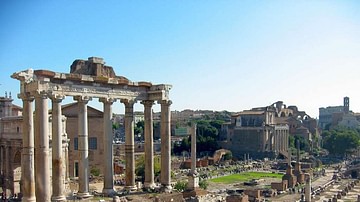
Definition
Ancient Rome
According to legend, Ancient Rome was founded by the two brothers, and demigods, Romulus and Remus, on 21 April 753 BCE. The legend claims that in an argument over who would rule the city (or, in another version, where the city would be located...
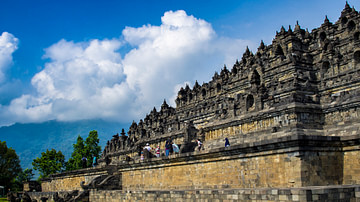
Definition
Borobudur
The Temple of Borobudur or sometimes "Barabudur" is a Mahayana Buddhist temple located close to Muntilan on the island of Java in Indonesia. Built during the rule of the Sailendra Dynasty (c. 650-1025 CE), Borobudur remains the world's largest...
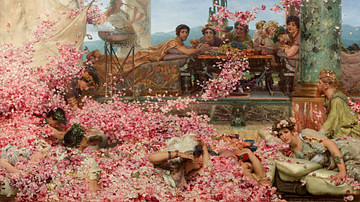
Article
A Brief History of the Rose
The rose that grows in many different forms in gardens all over the world today is an evolution of rose-like plants that lived in the northern hemisphere between 33 million and 23 million years ago. Traces of them have been found in the fossil...
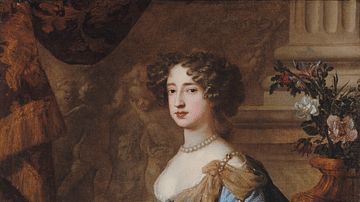
Definition
Mary II of England
Mary II of England (r. 1689-1694) ruled jointly with her husband William III of England (r. 1689-1702) until her death from smallpox. While William suffered a xenophobic reaction to his rule, Mary represented the continuity of the Royal House...